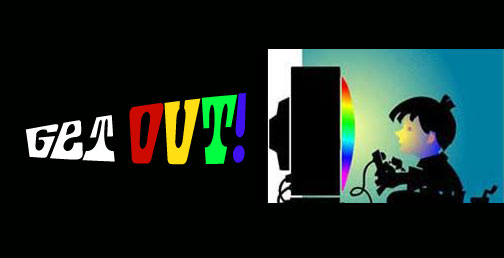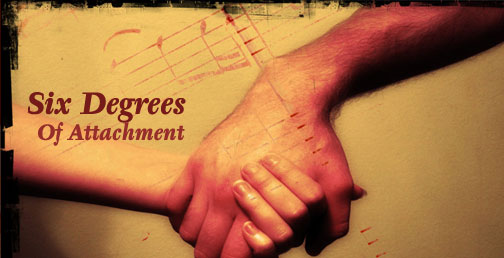I will probably anger you. And if you are a father who prides himself on ‘providing’ for his family, I will most certainly anger you.
I wasn’t planning on it; but a conversation I had last night changed the fate of this page. I do know one thing. This month, it’s not my father speaking through my words. No—this is nothing like him at all.
“I did everything I could just so I wouldn’t hate him. But there’s no point. How is it that the person who brings out the worst in me is my own father?”
The words pierced me. Not only did they shatter my ideal of perfect fathering, but they were uttered by a voice I had otherwise known to be positive and gentle (let’s call him Karthik).
Karthik’s father is a classic South Asian patriarch. He got married, got working, got money, and got children. What he never got was a choice. So now thirty years later, when his son is struggling to make a critical career decision, he doesn’t ask, “Son, what would you really like to do?”
Instead he says, “I sacrificed my whole life for you. For what? What have you done?” And what he doesn’t say, but Karthik hears, is: “You are a disappointment. You will never be half the man I am.”
As far as I’m concerned, Karthik is already double the man he is. Why? Because despite the fact that his father disrespects him, pushes him to his limits, discourages him from every goal he’d like to achieve—Karthik never gives up. He fights because he doesn’t want to resent his father, doesn’t want to hate his father, and most of all, doesn’t want to become his father.
It’s easy to write about great father-son relationships, the value of paternal bonds, and happy memories I have of my daddy. But it’s not so easy to write the truth. And the truth is that sometimes, and sadly so many times, some fathers get it terribly wrong.
I can’t judge Karthik’s father, nor anyone else’s. But what I can point out is that just because you provide your children with money, doesn’t mean your job is done. Fathering is not a financial investment.
The money you put in doesn’t come back returned with interest. Being the largest shareholder doesn’t make you the only decision maker. And when your child stops earning money, it doesn’t mean he no longer holds value.
Money is crucial. But it is not a weapon with which to strike your children. Karthik now lives with guilt (his father’s unhappiness is his fault), shame (nothing he ever does is good enough), and insecurity (he’s constantly trying to please his father).
I am furious; and even though I comfort Karthik by offering the parental perspective, I can’t help but feel there must be an expiry date on blaming your children for not having been able to pursue your dreams.
I borrow my father’s light, and make a plea to future parents. Unless you truly, sincerely, and desperately want to have children, please don’t. Unless you are able, emotionally and financially, to support and love a child without thinking of him as a burden, please don’t. And unless you are happy, genuinely happy with your choices—don’t bring a child into the world upon whom you will shed your failures.
Karthik is strong; he will overcome his father’s pressure. But some children are weak, and they get pushed into careers, marriages, and lifelong choices they hate because they can’t stand up to their fathers.
Why? Because believe it or not dads, your sons look up to you, and they adore you. Even when you discourage them, and even when you punish them. As fathers, you are fortunate that children are born with an innate ability to love selflessly. But those children will one day become men, and then your fortunes will run dry.
Karthik understands his father worked extremely hard to provide for his family, and that unlike him, did not grow up with the luxury of choice. But he also knows what his father did not do. He talked to his children, but did not see them. He listened to their problems, but did not hear them. He gave them everything, but did not give of himself. And that was all they needed.
So if you’re a father who prides himself on providing for his family, please think about what exactly it is you are ‘providing.’ If your only answer is “money and a roof on your head”—you might want to think again about Karthik.
And if your answer is much more than that, I thank you. For being one of so many wonderful fathers, just like mine, who took the time to love their children for who they really were.
I idolize my father, and this is not borne of the fact that he is no longer alive. I always idolized him—the man who spent every day of his working life investing billions of dollars, but never once told his children his salary. The man who woke at 4 am, rode a bicycle to deliver newspapers to people’s doorsteps, then put on a suit and travelled four hours in the train to a finance job in the city, and finally came back home to his children with a smile on his face, a twinkle in his eye, and not a single expression that gave away the exhaustion of his day.
He too, had sacrificed many things for us. But the crucial difference is he never saw it like that. And if he were here to read this, he would be angry at me for even having typed it.
But most of all I idolized him for his inability to judge anybody—be they rebellious sons or stern fathers. It’s because of him that my anger at Karthik’s father subsides, and I start to see him as once a child himself, victim to the culture, expectations, and limitations of his time. He too, might still be longing for somebody to see him, truly hear him, and ask, “How do you feel?”
I wish Karthik and his father did not have to constantly play the blame game. And as I struggle to pick sides, the fact that I can’t means my father must be back, speaking through my words again.
Because yes, this—this is just like him.

